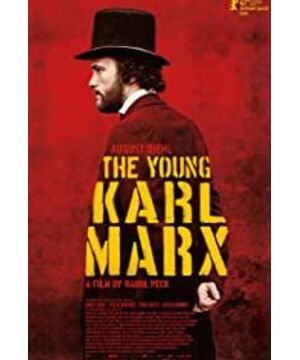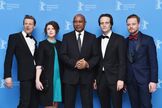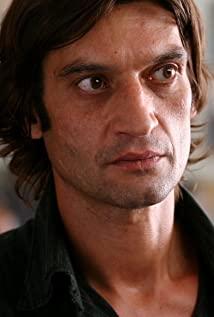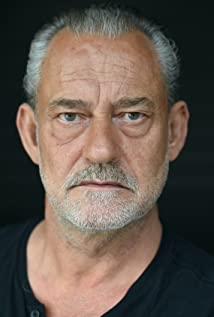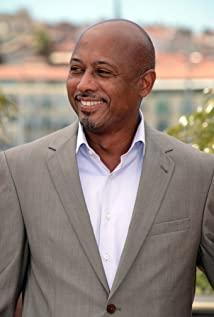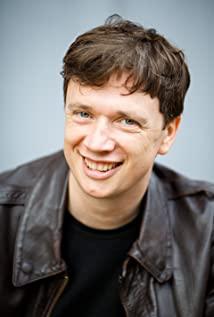The Birth of "Young Karl Marx" Thinker
Seeing this movie, I didn't hesitate to look for it. Because, I have not only admiration for Marx, although I have read some short biographies, I have always been looking forward to learning about Marx through movies.
The film cleverly intercepted Marx's young years, what he did in the proletarian revolution in Europe, especially the experience of writing the "Communist Manifesto". Of course, if there is Marx, there will be Jenny, and not even Engels. So no matter what the movie, it satisfies my curiosity about Marx very well. And the film shows the birth of a thinker very well.
1. The society of the best
Obviously, the age of Marx was the eve of the storm. Because of fierce competition, the bourgeoisie had exploited the proletariat to an extreme degree, and the contradiction between factory owners and workers was no less than that between slave owners and slaves. Such a social background naturally forces individual classes to revolutionize, and also forces those intellectuals to think and try to solve social contradictions. First of all, Marx was an excellent successor. He was proficient in philosophy. He critically studied and inherited the theories and viewpoints of previous philosophers, formed his own strong and keen thinking, and began to perceive "surplus value" and " "Class contradictions".
2. Support of friendship and love
Through the film, we have filled up our understanding of Yanni, who turned out to be a revolutionary. One thing to her praise is that, like Engels, they are all born in the bourgeoisie and are the children of exploiters, but they all sympathize with the weak and perceive "inhuman exploitation" and "unfair society", so that they stand firmly in the beginning. On the opposite side of the parents. Engels married a rebellious female worker, and Jenny married Marx who was expelled. And they all gave great support to Marx. Although Engels is indeed not as smart as Marx, he did a very solid job. He carefully collected information and studied the status quo of workers. This obviously complements Marx. Although both are theoretical results, Marx is a pure theory. But Engels is a specific case and research. Because they have the same goal by different routes, and because they care about each other, they become friends and comrades-in-arms for a lifetime. When teaching "Speech at the Tomb of Marx" to students, I always talked about a problem: when Marx was doing research, Engels did not hesitate to go home to work for his father in order to make money to support him. Marx passed away, and Engels continued to finish his unfinished work. Such friends are really hard to find in the world. The film shows how Marx was able to support his family without any excuses when he had no job and was unable to support his family because he had many children, and because he was under surveillance and expulsion.
Three, rigorous definition
I remember that when I was in middle school, I was deeply impressed with Marx’s "slurping" concepts (for example, matter is not dependent on human consciousness and can be reflected in the objective reality of human consciousness). Because it really took time and effort to remember it, so that it will be unforgettable for a lifetime. Thinking about it now, every concept is quite rigorous and even perfect. Compared with mathematics "undefined definition" (thinking that it is innate and natural and does not need to be defined, just like the attitude of religion to the attributes and essence of God, the source), or "axiomatic definition" (thinking that everyone agrees and accepts it. Become the basis of thinking, just like everyone believes in the renminbi) are rigorous. Because to be precise, Marx’s definition is the same as Lao Tzu’s "Tao, Dao, and Very Dao". It is a contradictory and unified "self-consistent definition." They are two concepts. What is provable must be true, but true is not necessarily provable).
The film also highlights Marx's insistence on definitions and the significance of focusing on precise and rigorous definitions. In the film, Marx met Mikhail Alexandrovich Bakunin (a famous Russian anarchist). Bakunin was a sought-after master at the time, but it was obvious that Marx dismissed him. Also deliberately asked him questions and provoke him (this also allows us to see the true personality of Marx, indeed Newton also has such a personality, all lions do not want others to be king in front of them). What Marx is talking about is "definition." Marx asked Bakunin: How do you define theft? Bakunin replied: Everyone knows that this is an injury to strange property owners. Marx said: According to what you said, ownership and ownership are the same. You said that "ownership is an act of stealing." If I steal his belongings from someone else, did I actually steal it? If someone asks us what theft is, even if we look it up in the dictionary, we estimate that what we get is similar to Bakunin's statement. But Bakunin's speech just now pointed out that "ownership is an act of theft" is problematic. Although we all know that "ownership is an act of theft" is similar in concept to Marx, that is, the system in which capital is owned by the bourgeoisie is the basis for capitalists to exploit workers, and exploitation is a kind of "theft." Then a thief (basically a person who can't even be a worker) steals money from a rich person (basically a capitalist), that is "stealing something from a thief". Obviously, this "contradiction" has caused Bakunin's "definition of ownership" to fall into an irrational trap. The wise Jenny pointed out: Carl never pretends to be anything. He wants to say that your expression is an imagination, a beautiful imagination, but there is an idiom that can explain it: This is a kind of endless and any result. Imagination. Obviously, Marx is the Godel of philosophy, and he pursues rigor. Although humans use language (symbols) to capture the truth, there are great limitations, but it should be said that Marx has set a model. It is precisely because he is entangled in the precision of language that he can contend with exquisite idealism and prepare for the establishment of a scientific ideological edifice.
Fourth, walk in the forefront of the times
All revolutions are the same. Workers want revolution, but someone must lead the way. In the film, the revolutionary hero William Vettering, as the leader and creator of the German proletarian revolution, seems to have greater authority. He was called "the most respected person in our entire movement, a soldier and a leader" by the "League of Justice". Of course, in the eyes of Marx, Weidlin was just a "utopian socialist". He only knew about revolution but had no clear program goal. So I accused him face to face: I mean you blindly inspire the workers, but you don't put forward any constructive program. This is simply a false and arrogant game played by a prophet who is good at bewitching people's hearts and fools who are unable to speak up. Although Marx is a theorist, he is not a theoretician who is divorced from reality, let alone a theorist who is based only on existing theories and practices. He is a theorist who establishes a self-consistent theoretical system. He is pursuing truth. The pursuit is the liberation of all mankind. Therefore, Weidlin's "ideological leadership" was quickly deprived of Marx. Although the "League of the Righteous" was angry at Marx's offense, they had to accept his views. Although the workers' leaders admired Weidlin, they were able to understand the correctness and practical significance of Marx's views.
Because Marx is at the forefront of the times, the guiding significance of his thoughts naturally cannot be changed. Think about it, Marx's thinking not only changed China, but also changed the whole world. There is a quite proper statement that capitalism is not destroyed, not because Marx was wrong, but because Marx was right, so capitalist countries have modified the capitalist system to avoid its destruction.
5. The charm of popular language
In order to write a revolutionary program for the "League of Justice". Marx created the famous "Communist Manifesto". Think about it. At that time, Mao Zedong was immediately clear after reading this "Communist Manifesto", accepted Marxist philosophy, and worked hard for it all his life. One can imagine how great and sacred this work is. When I looked for this work back then, I found that it was really short in length, but it was just a few pages thin. Why are those thin pages of paper so powerful?
At the end of the film is a dialogue between Marx and Engels. This is how Engels persuaded the exhausted Marx to create the "Communist Manifesto."
Engels: Carl, the people have begun to riot, the price of bread has also started to rise, 500,000 people have starved to death in Ireland, the unemployment rate is also increasing, Austria and France are already on the verge of crisis, and Poland is ready. Now, we must always be ready to win the fight, stand up, oh my God, wake up.
Marx: I never stopped, not for a second. I'm almost 30. Friedrich, I have no money and no energy. I just want to write a book. I want to take a good breath. I have enough. Those flyers and brochures were included.
Engels: Well, you and I all know, those...the efforts we have made, the books, articles, and speeches we have made, if we don’t summarize a simple and easy-to-understand book, then these will be in vain waste.
Obviously, Marx fell into a kind of exhaustion. He wrote a lot of articles and made a lot of speeches before, but he didn't seem to make the workers understand. But Engels found the key, which was to write an easy-to-understand pamphlet to explain everything thoroughly. Marx obeyed Engels' opinion. Finally, with the help of Engels and his wife, this revolutionary work was completed.
Seeing this, I think of Schopenhauer. I read Schopenhauer’s work before, and found a mysterious expression in the preface, which means that only after that article "The Difference Between Men’s and Women’s Thinking", Schopenhauer was accepted by the world, and even worshipped (even Europeans had a copy at the time) Schopenhauer). Before, no one understood his work, and no one liked his work. So that I even forgot everything about the "Thinking Differences Between Men and Women" today, but I remember this paragraph. Think about it, the thick and densely packed "The Complete Works of Marx and Engels" and this thin "Communist Manifesto" are actually the same. This is both witty irony and far-reaching enlightenment. 18.1.2
View more about The Young Karl Marx reviews


